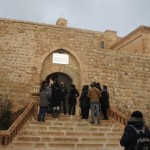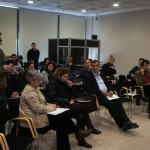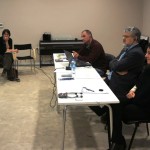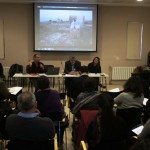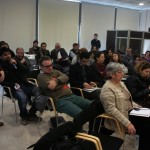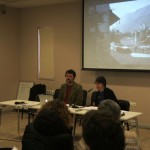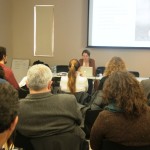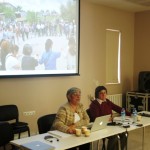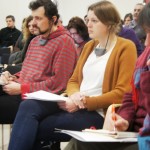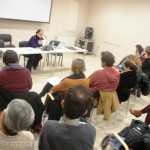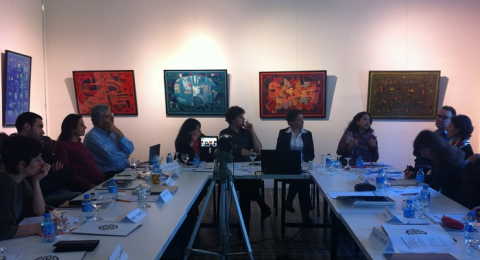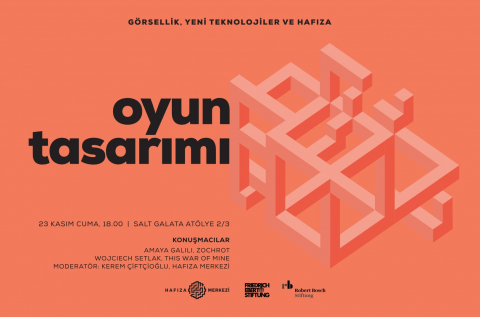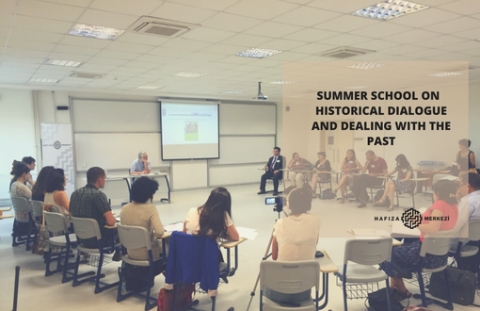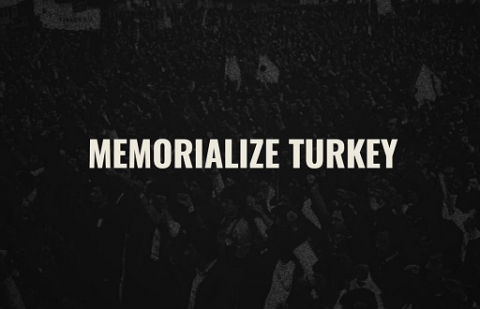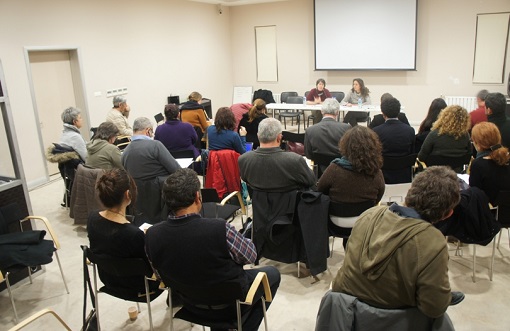
A workshop on memorialisation and democratization in Turkey held in Mardin
Hafıza Merkezi, in partnership with the World Policy Institute, organized a workshop on “Memorialisation and Democratisation in Turkey” in Mardin on 2-3 February.
As discussions continue on how to confront Turkey’s past, which is full of human rights violations, there have also been efforts to create spaces of memory in order to weaken the culture of silence about these violations. Hafıza Merkezi, in partnership with the World Policy Institute, organized a workshop on “Memorialisation and Democratisation in Turkey” in Mardin on 2-3 February. Attended by activists from civil society organizations, municipalities, and others working in the field of memory studies, the workshop facilitated discussions on international examples of memorialisation as well as current examples in Turkey and steps that still need to be taken.
Professor Elazar Barkan from Columbia University, who gave the keynote speech at the workshop, started off by explaining that within the last ten years, memorialisation initiatives have gone from being state projects to being the work of social groups that fight against human rights violations. Prof. Barkan claimed that memorialisation projects done for the sake of ensuring that intense human rights violations experienced during processes of regime change or civil war occur never again! are political acts in their own right.
The first example of memorialisation initiatives was presented by Eitan Bronstein Aparicio, one of the founders of Zochrot, a civil society organization that aims to raise awareness among Israeli Jews about the Nakba (the forced mass migration of Palestinians in 1948). While Aparicio focused on the documentation and touring activities conducted for the sake of keeping alive the memory of the Palestinians who lived in the occupied territories during the process of Israel’s establishment—a memory that Israel tried to erase—the reactions of Israeli Jews to this project were also shared during his talk.
Subsequently, Emir Hodzic explained the work of IZVOR, a civil society organization working in the city of Prijedor in Bosnia-Herzegovina that fights for the rights of the families of war victims and those who disappeared during the war in the 1990s. Hodzic, whose own family was a victim of the war, used examples to show what kinds of dynamic and creative methods can be used in situations when concrete efforts to memorialise war victims and the disappeared come up against constrains and obstacles.
Hafıza Merkezi’s briefing, which relates the kind of framework in which the current efforts in Turkey must be understood as well as the criteria that dictate how international experiences can be brought into the Turkish context, stated that the creation of memory projects and sites of conscience that focus especially on human rights violations can contribute to the process of democratisation. Additionally, Abdullah Demirbaş, the Mayor of Diyarbakır Sur District, gave a talk on the importance of confronting the past by creating spaces of memory and he spoke about the planned construction of a Conscience Memorial in Diyarbakır. Afterwards, the workshop continued with each of the participants sharing their own experiences with memorialisation.
On the second day of the workshop, Anna Warda spoke about the emergence and expansion of Stolperstein (Stumbling Block, a special stone in the sidewalk placed in front of the buildings where murdered Jews lived and inscribed with “Here Lived” and their names), a creative art project that started in order to commemorate the victims of the Holocaust in Germany. Fethiye Çetin and Zeynep Taşkın related an example from Turkey, in which the Hrant Dink Foundation embarked on a project to restore historical fountains in Havav/Habap, an old Armenian village within the borders of Elazığ. Çetin and Taşkın shared how the project was implemented stage by stage, what difficulties they encountered, and the project’s impact. The discussions about how the expansion of spaces of memory in Turkey can contribute to the process of democratisation illuminated the efforts at commemoration efforts that are planned for the near future.
In the upcoming months, within the scope of the “Memorialisation and Democratisation in Turkey” Project, Hafıza Merkezi will continue to gather information on the memorialisation efforts undertaken in Turkey. We will continue current efforts to produce a website and book that contain a catalog of existing spaces of memory in Turkey as well as detailed information related to these spaces.
